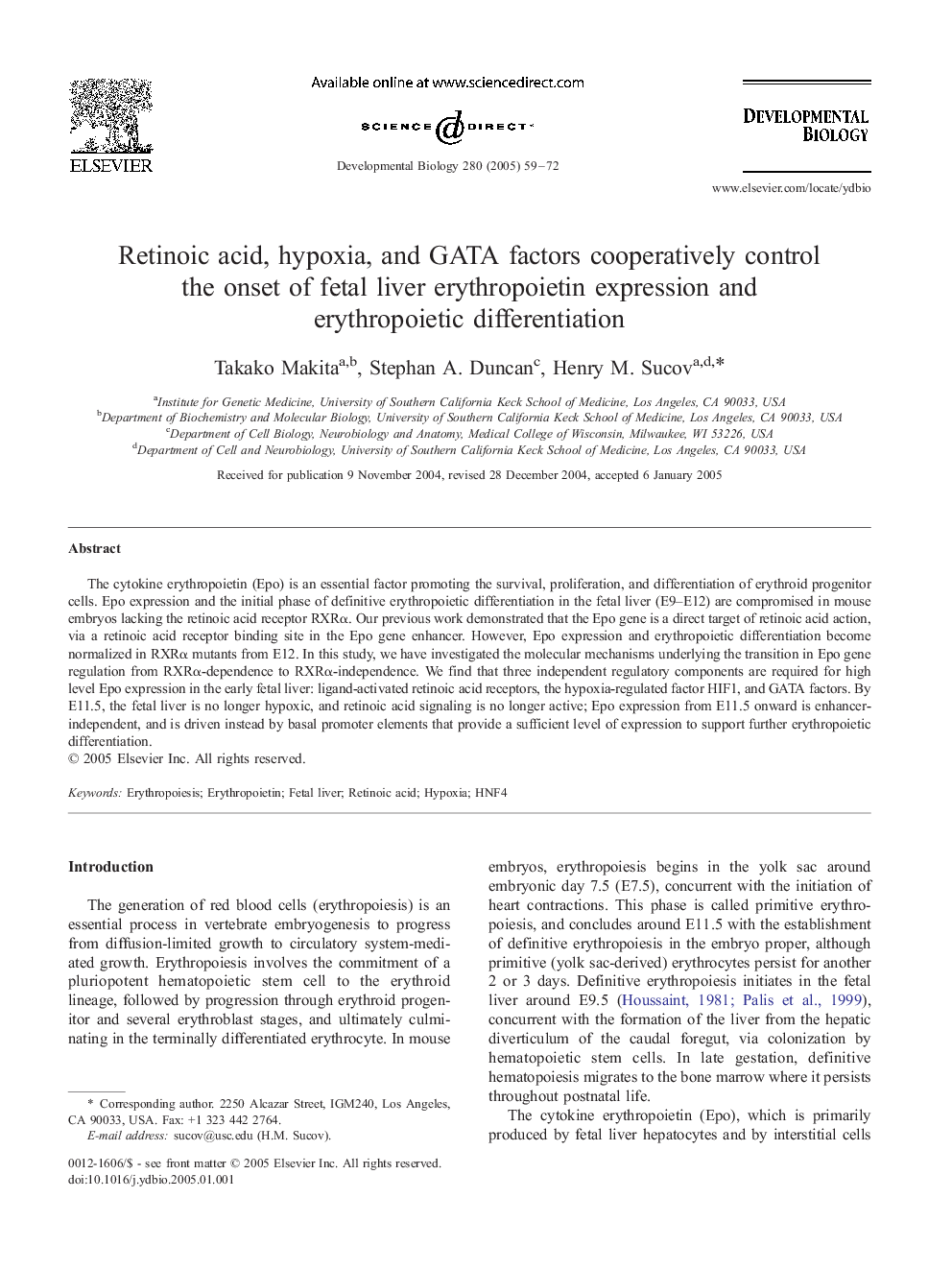| Article ID | Journal | Published Year | Pages | File Type |
|---|---|---|---|---|
| 10934275 | Developmental Biology | 2005 | 14 Pages |
Abstract
The cytokine erythropoietin (Epo) is an essential factor promoting the survival, proliferation, and differentiation of erythroid progenitor cells. Epo expression and the initial phase of definitive erythropoietic differentiation in the fetal liver (E9-E12) are compromised in mouse embryos lacking the retinoic acid receptor RXRα. Our previous work demonstrated that the Epo gene is a direct target of retinoic acid action, via a retinoic acid receptor binding site in the Epo gene enhancer. However, Epo expression and erythropoietic differentiation become normalized in RXRα mutants from E12. In this study, we have investigated the molecular mechanisms underlying the transition in Epo gene regulation from RXRα-dependence to RXRα-independence. We find that three independent regulatory components are required for high level Epo expression in the early fetal liver: ligand-activated retinoic acid receptors, the hypoxia-regulated factor HIF1, and GATA factors. By E11.5, the fetal liver is no longer hypoxic, and retinoic acid signaling is no longer active; Epo expression from E11.5 onward is enhancer-independent, and is driven instead by basal promoter elements that provide a sufficient level of expression to support further erythropoietic differentiation.
Related Topics
Life Sciences
Biochemistry, Genetics and Molecular Biology
Cell Biology
Authors
Takako Makita, Stephan A. Duncan, Henry M. Sucov,
